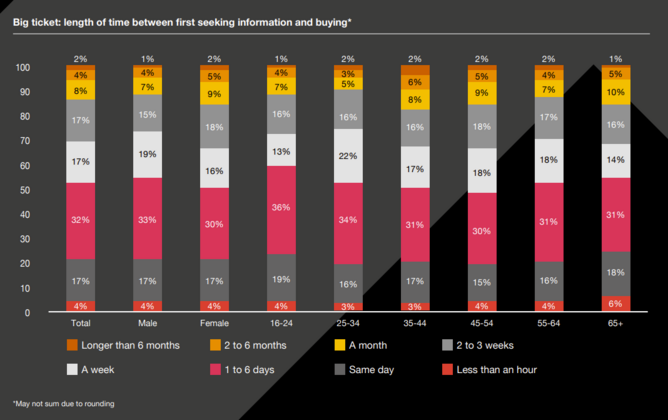PwC provides sustainable retailers with consumer insights

In the digital era, consisting of the likes of various online retail platforms, consumers are spoilt for choice when it comes to purchasing products. But, there is always one characteristic that sways their decision to buy an item over the others and sustainability is now that deciding factor.
Not only are consumers conscious of where their products come from and how they are produced, but also the lives they will lead once they are no longer required. Ultimately, the high street and online marketplace is now shaped by the consumer sentiment shift towards sustainable, socially conscious goods.
PwC recognises the importance of these challenges for businesses and both the short-term and long-term changes that must be made to remain competitive. As a result, the consultant produced a valuable report, ‘The Consumer Reconsidered’, which puts into perspective just how much people are using e-commerce and where in the buying process this fits in.
“Too often, businesses make assumptions about their consumers - what they want and how they shop. These can be dangerous. It’s time to revisit what you know about your consumers and refocus on what they value, to remain relevant as information and channels multiply,” says Lisa Hooker, Leader of Industry for Consumer Markets, PwC UK.
Consumer purchasing isn’t purely about sustainability
While there changes occurring around the types of products that consumers are buying and the sustainability criteria of their favourite brands, much of the purchasing experience is driven by information.
According to its research, the high street is still an important part of shopping for many, whether it marks the beginning or the end of the buying process. Around 59% of respondents to PwC’s survey say that e-commerce is a critical part of their purchase, even if they choose not to make the physical transaction through a website. Across all adults, in-store purchasing is still significant with 37% of the surveyed group saying they buy from bricks and mortar stores, around 32% acquire their products online, and the rest are indifferent.

Retailers will also gain valuable information from the report about the time period in which consumers purchase their products. This information is critical for understanding the consumer mind and allows companies to leverage the time it takes for them to make their decisions based on value.
It is expected that customers would take longer to make their purchases, around 2% of individuals take longer than six months to make a purchase of a big-ticket item—from receipt of information to the monetary transaction. The sweet spot for high-ticket goods seems to be within a week as around 32%, the majority, make their purchase within one to six days.
Shopping online as an experience
From the report, it seems that the act of shopping remains the same with almost half of those aged 18 to 44 suggesting the shopping experience is a deciding factor in their incentive to purchase. When it comes to operating online, consumers lack the experience that customer services provide and the interaction that they get from physical staff.
This is not something that can be emulated by online retailers at present, but user experience (UX) is an e-commerce website’s ticket to converting its potential customers.






